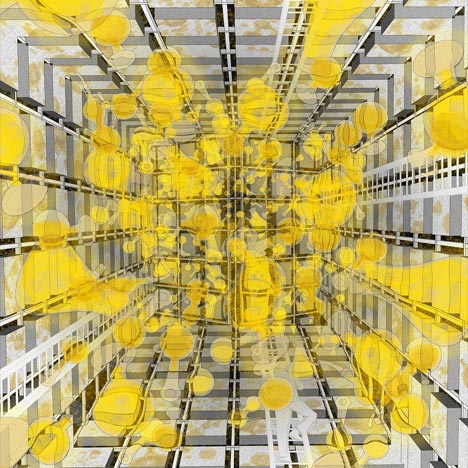
The Liquid Light of Diego Garcia by Viktor Westerdahl
Bartlett School of Architecture graduate Viktor Westerdahl has devised a fantasy scenario where the discovery of a new liquid energy cues construction of a remote city in the middle of the Indian Ocean.
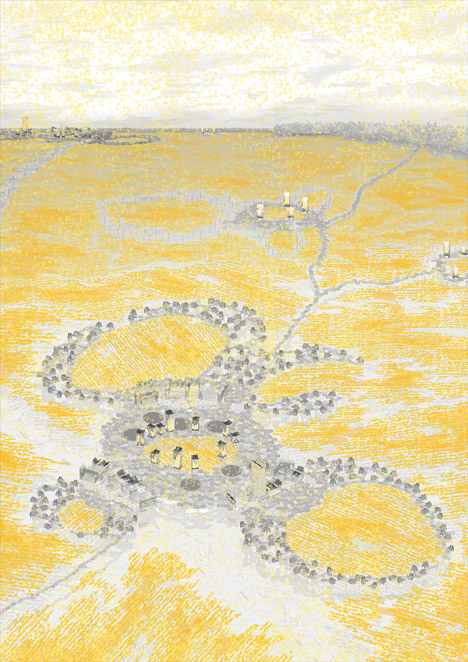
Viktor Westerdahl completed the project as part of the Bartlett's Unit 10, which asked students to imagine a fictional future and assess the impact it could have on architecture and communities.
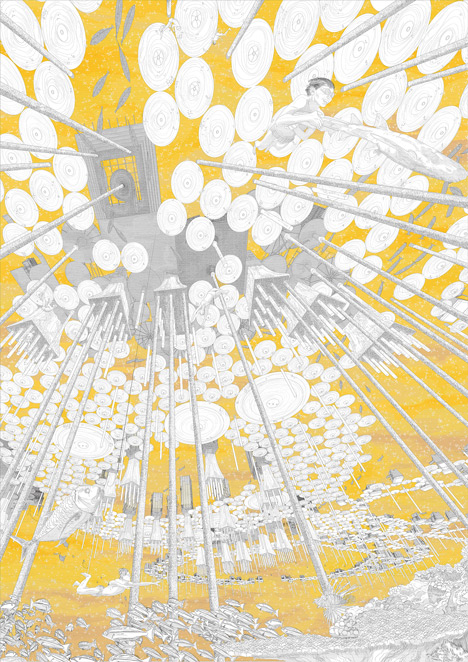
"I've based my speculation on the impossibility that, rather than honey, bees would collect liquid light, a clean and green energy source that is similar to solar power and has an efficiency of 96 percent," he told Dezeen. "What if this energy all existed on one island? The community would have to become the beekeepers of a new ecology."
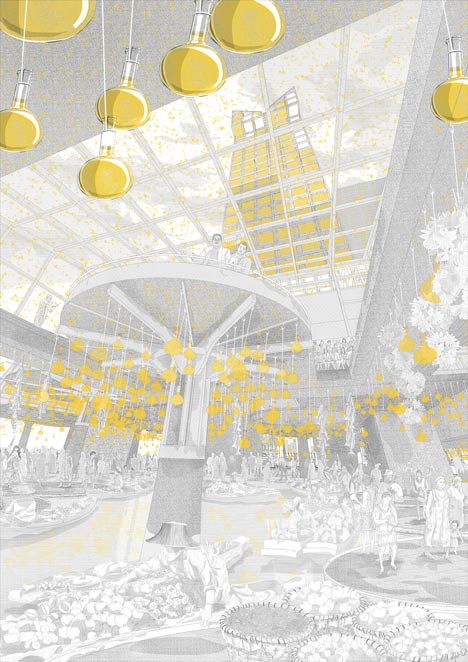
Westerdahl envisages the scenario for Diego Garcia - an island where the indigenous community were expelled in the 1960s to allow the US government to establish a military base - and suggests that the discovery of liquid light would prompt the construction of a new infrastructure for harvesting and trading the zero-carbon energy source.
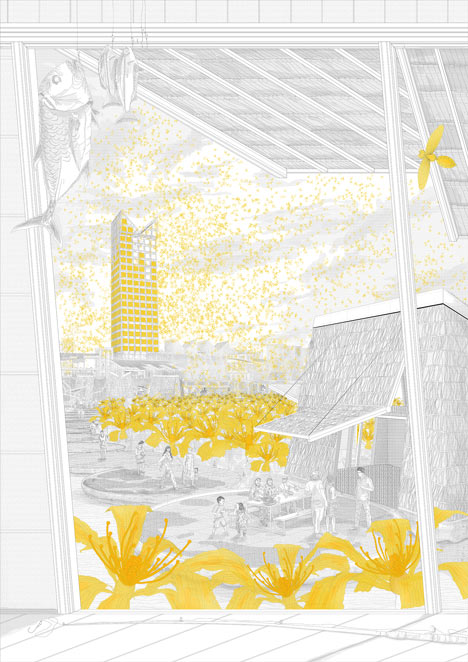
"The question is, how do you urbanise the island without risking ruining the thing that allowed it to be created?" he asks.
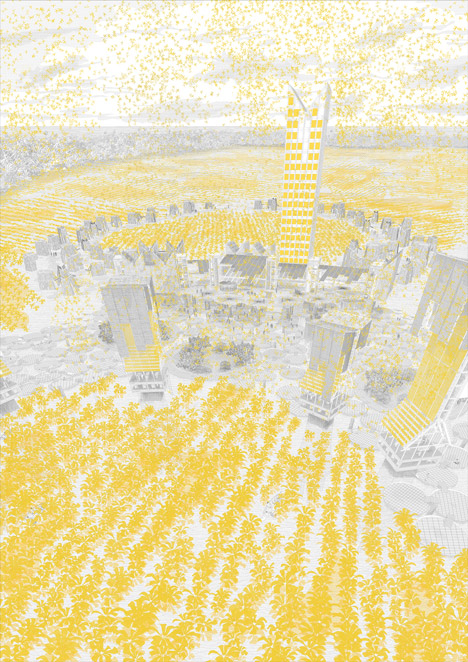
To avoid disturbing the existing ecology, Westerdahl proposes that residents construct their new buildings on stilts, which would emerge amongst the lily pads of the island's central lagoon. A community bank would store the harvested energy and trading would take place in a new marketplace.

Liquid light would also affect day-to-day life, as its glowing presence would be visible on the flowers and water lilies, as well as on the bees buzzing through the skies overhead.
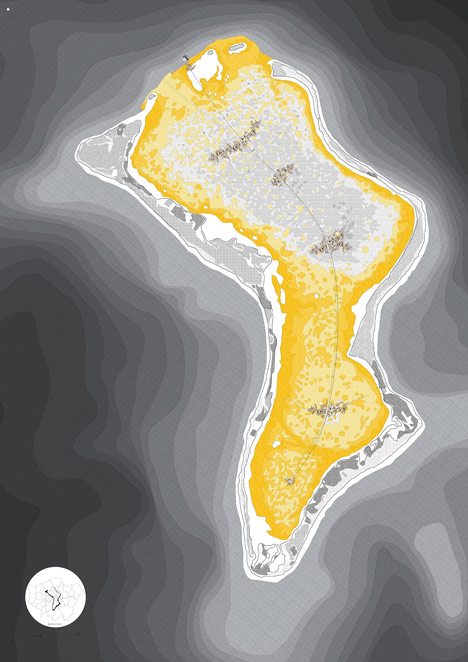
A previous graduate of the Bartlett's Unit 10 presented a science-fiction world in which London grows a jungle of crops for fuel and food. Other past graduate projects from the school include a conceptual community powered by faeces, electric eels and fruit, and a sci-fi animation where robots battle with police. See more projects from the Bartlett School of Architecture.
Here's a project description from Viktor Westerdahl:
The Liquid Light of Diego Garcia
"In ancient times Lixus was the site of a famous grove which bore golden fruit. Its flowers have petals like golden foil... ...Insects like bees with metallic bodies and golden wings gather the juices of this fruit. Inside their nests, these insects... ...manufacture a honey like substance for the nourishment of their young." - Pliny the Elder, Inventorum Natura, 1st cen. AD
Instead of honey, a honeybee ecology yields Liquid Light – an energy equivalent to the extraordinary future potential of solar power at an efficiency of 96%. This invented nature is inserted into the real social and ecological context of a remote island, Diego Garcia. Its previously dispossessed local community is empowered by this new zero-carbon, sustainable energy, collectively cared for in commons trusts. Trade in Liquid Light underpins the existence of the island as an independent city state.
The fragile ecology of the island is nevertheless placed at risk by the process of urbanisation necessary to harness its Liquid Light. To minimize the impact, a string of villages are placed floating in the lagoon. These form a soft infrastructure of continuously adaptable elements constructed with a context specific materiality. Buildings are thatched with woven palm leafs and structural aluminium segments are produced cleanly with the aid of the abundant energy of Liquid Light.
On Diego Garcia energy is not only an integral part of its ecology, but also central in enriching the experiences of daily life within its communities. Below a glowing sky of Lixus Bees, floating houses circle fields of luminous flowers. The village square is illuminated by vertical beehives and towering above the settlement, a community bank is sparkling with the daily harvest of Liquid Light.
Project tutors: CJ Lim, Bernad Felsinger and Rokia Raslan